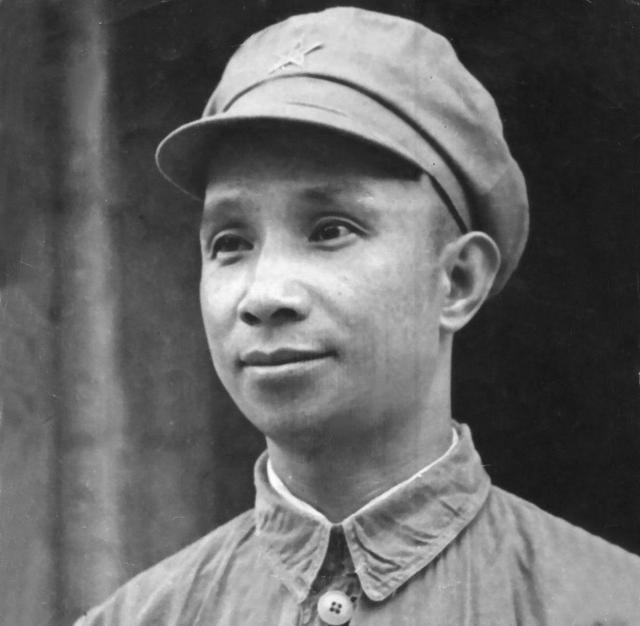The New Fourth Army was scattered in many areas of the eight provinces, and was a large partnership, and seven divisions were later formed. After the Long March of the Red Army, the Central Bureau of the Soviet Union was established to lead the guerrillas left in the south. It was a mistake that Xiang Ying could not change the form of struggle in the light of the changes in the new situation. How to insist, there is no idea, the result is a rush. At that time, I was no longer in the Central Soviet Zone, but had already arrived in the northeast of Gansu, where I received a telegram that the main Red Army had already moved, and asked us to quickly dispatch and cooperate and move to the outer line. There is no indication of how to stick to the inside line. We merged the Red Seventh Army and the armed forces of the Soviet Region in Northeast Jiangxi into the Red Tenth Army, reorganized the Red Seventh Army into the Nineteenth Division, the former commander of the Seventh Army, Xun Huaizhou, as the commander of the division, and the troops in Northeast Jiangxi into the Twenty and Twenty-first Divisions. It was as mighty as the Great Move, and there was little mobilization and preparation politically and organizationally. The transfer of troops to the border between southern Anhui and Zhejiang was a target, and the enemy quickly followed suit, quickly collapsed, and then transferred to the border areas of Zhejiang and Fujian. At that time, the Soviet area in eastern Gandong was still very consolidated, and the enemy was particularly afraid of mine arrays.

The Red Seventh Army from the Central Soviet Region to the northeast of Gan, also after six or seven thousand kilometers of small long march, all at once out, morale has an impact, the troops were reduced by half, but also need to rest, let the enemy surround and then rush out, hasty turn out is very risky. The main leaders of northeast Jiangxi have all come out, and no leaders have been left to persist in the struggle. Liu Yuxi was the commander of the legion, and it was impossible to fight, and the political commissar Le Shaohua was an electrical worker, one of the twenty-eight and a half Bolsheviks in Moscow during the Wang Ming line. He served as the general branch secretary of the Soviet area for more than a month, the division political commissar for two or three months, and then he became the regimental political commissar, and the cadres were improperly equipped. Liu Ying is the director of the political department, and I am the chief of staff. The disunity of the principal leading cadres is a big problem, and they quarrel when they start an army. Comrade Fang Zhimin is the chairman of the Military and Political Committee and is a good comrade, but he does not understand the military. At that time, it was not known that the main Red Army had already marched, and the movement warfare at this time was different from the movement warfare before the main Red Army's Long March. The three divisions totaled more than 7,000 people, each division had 2,000 or 3,000 men, which were actually three relatively full main regiments, and the enemy had more than thirty regiments. We also had a radio when we came out, but Xiang Ying didn't have any instructions for us. We went to Maolin in southern Anhui province for a turn, came back with a horse gun, left the enemy behind, and turned back to the Northeast Of Ganhua (Kaihua) Wu (Yuan) De (Xing) Xiaosu District, that is, the Huaiyushan area, and the blockade line across a stream was the Great Soviet Area in Northeast Gan. The enemy is a stronghold on five or six miles, some are a platoon, some are a squad. Troops were housed on the first day and the blockade line was crossed the next night. I played on the vanguard, Comrade Liu Ying was wounded and also walked with me, with a heavy machine gun company, the wounded and sick people first, the enemy shot, we did not return the gun, we passed. Comrade Fang Zhimin was in the rear, the enemy shot at the gun, they did not pass, and then they shot again, and did not break through, and as a result, they were scattered by the enemy, Comrade Fang Zhimin was arrested, and the political commissar Le Shaohua was dismissed. Later, I was the commander of the division, and Liu Ying was the political commissar, saying that it was the Fujian-Zhejiang Advancing Division, but in fact there were only more than 440 people, and the enemy was pursued by eight regiments. At that time, we still had a radio station, and later because there was a sub-district commander in the Northern Fujian Yellow Road who mutinied, the enemy hit our ambush and knocked out our radio, and from then on we lost contact with the Jiangxi Soviet District. Xiang Ying never gave any instructions, and we still got some progressive books and periodicals from Shanghai, and documents such as the Party's August 1st Declaration. We worked in Zhejiang for more than three years, and we made it very fierce, with more than 400 people growing to more than 1,600 people and mobilizing more than forty regiments of the enemy.